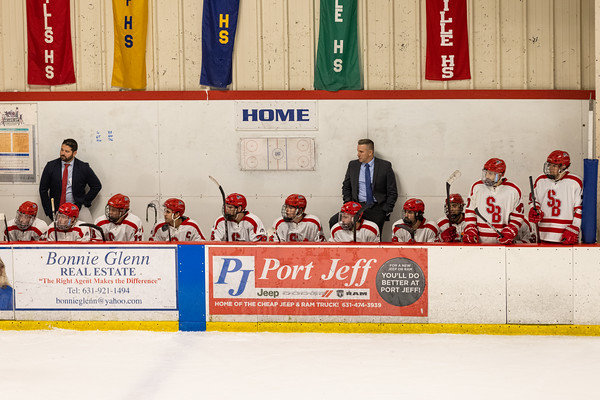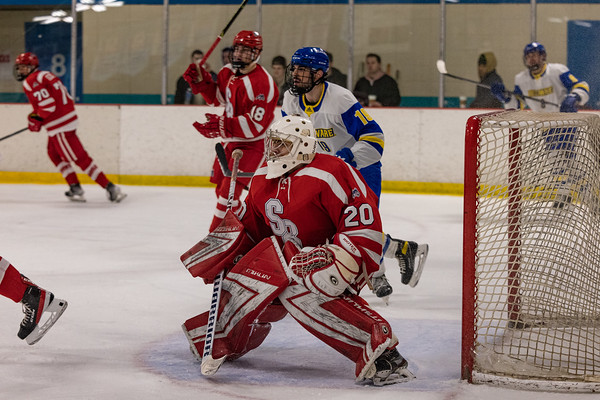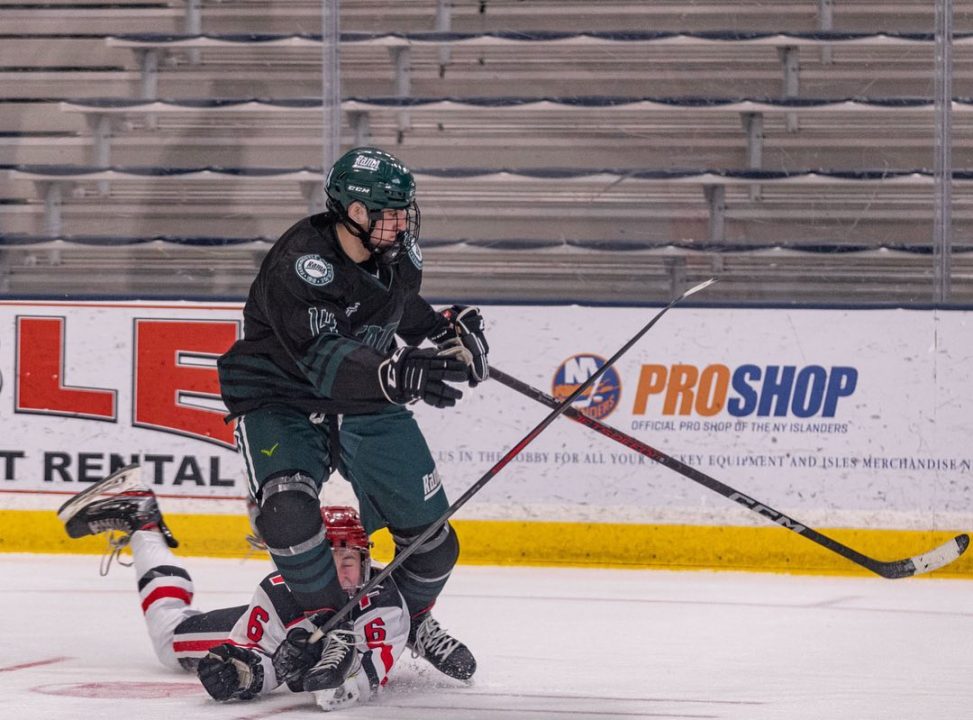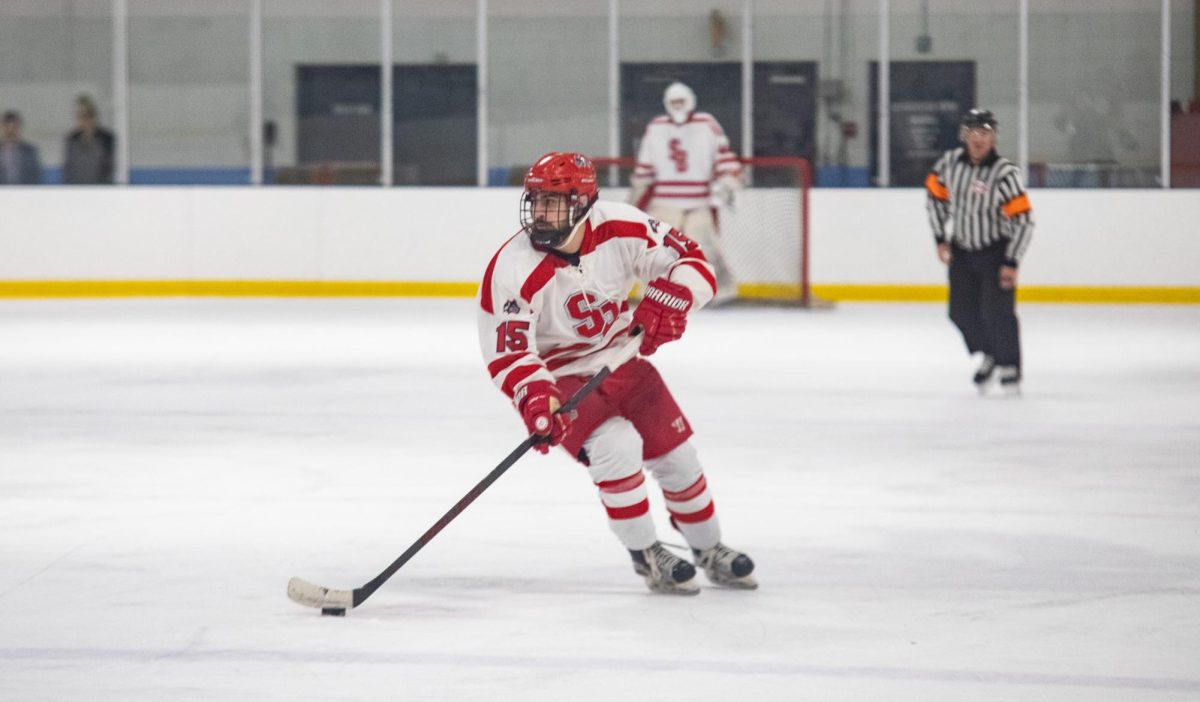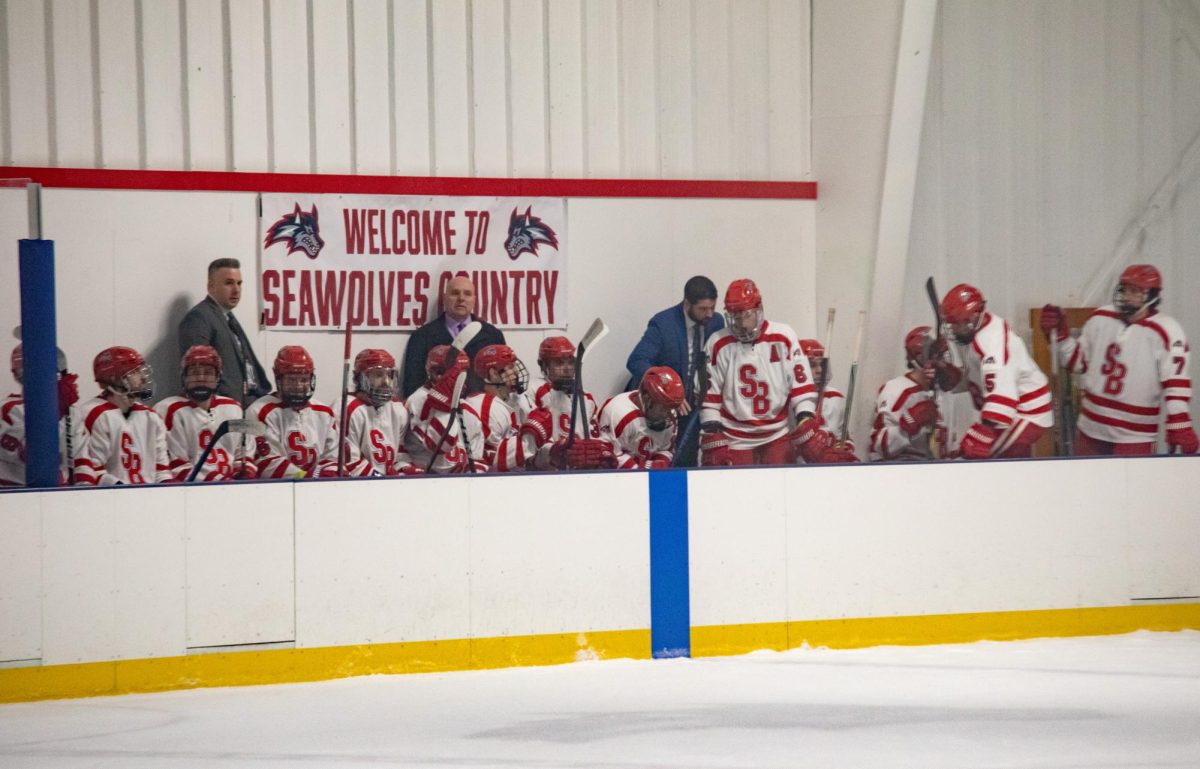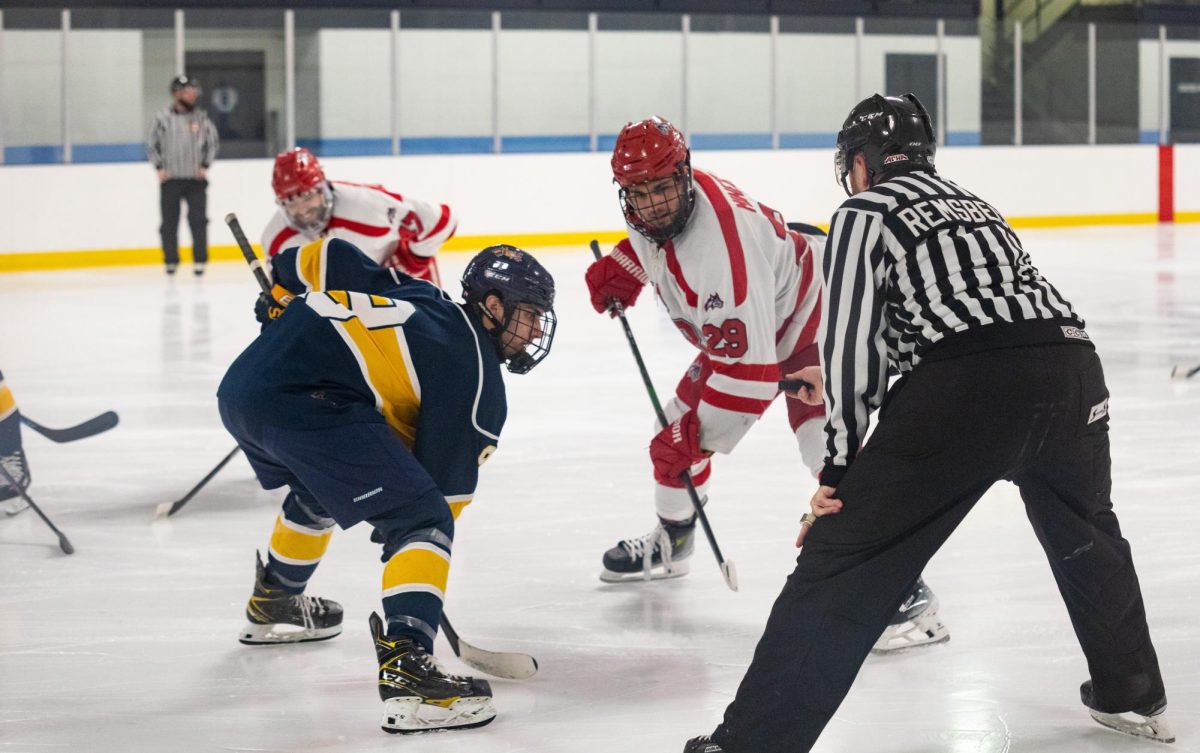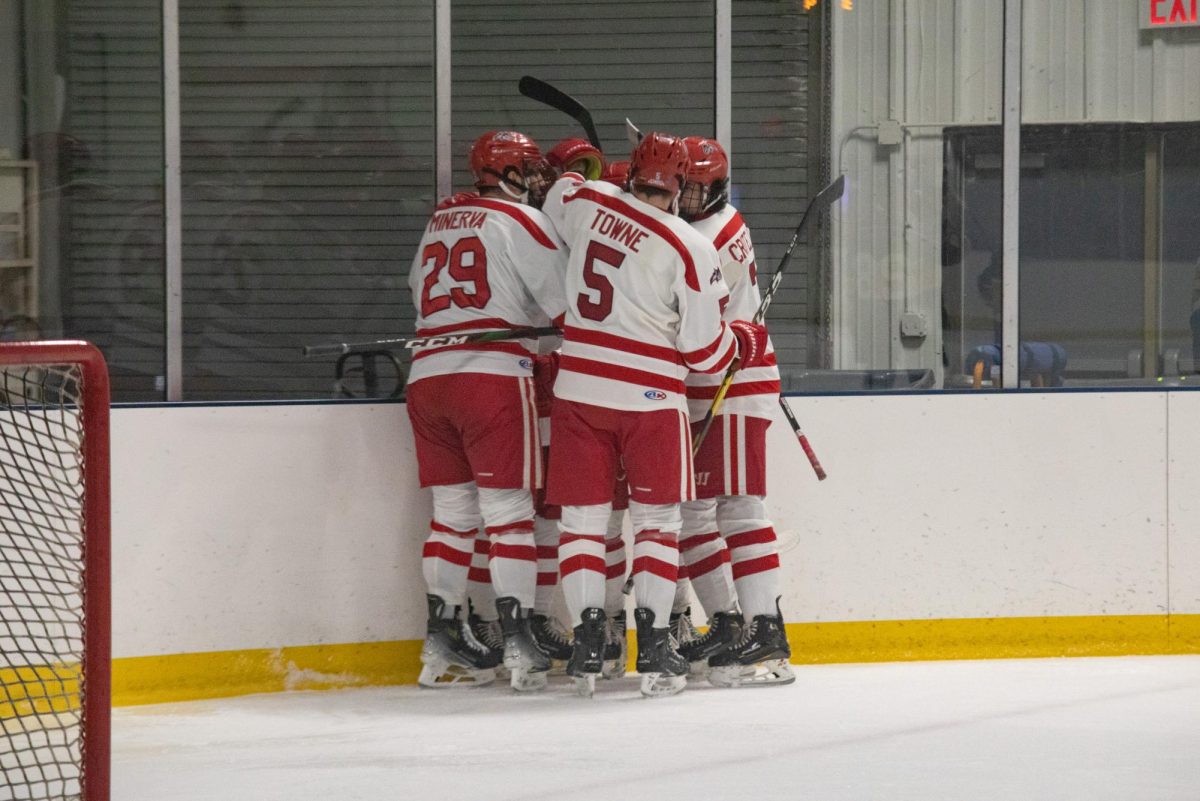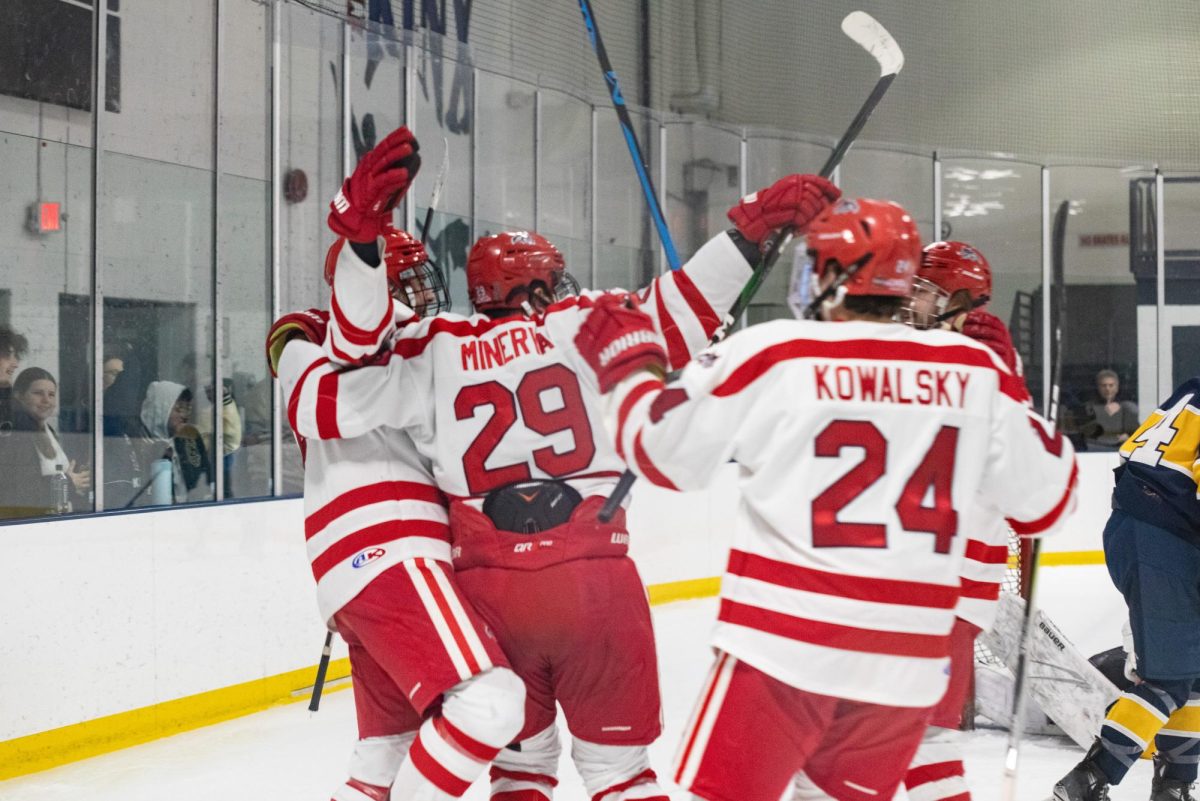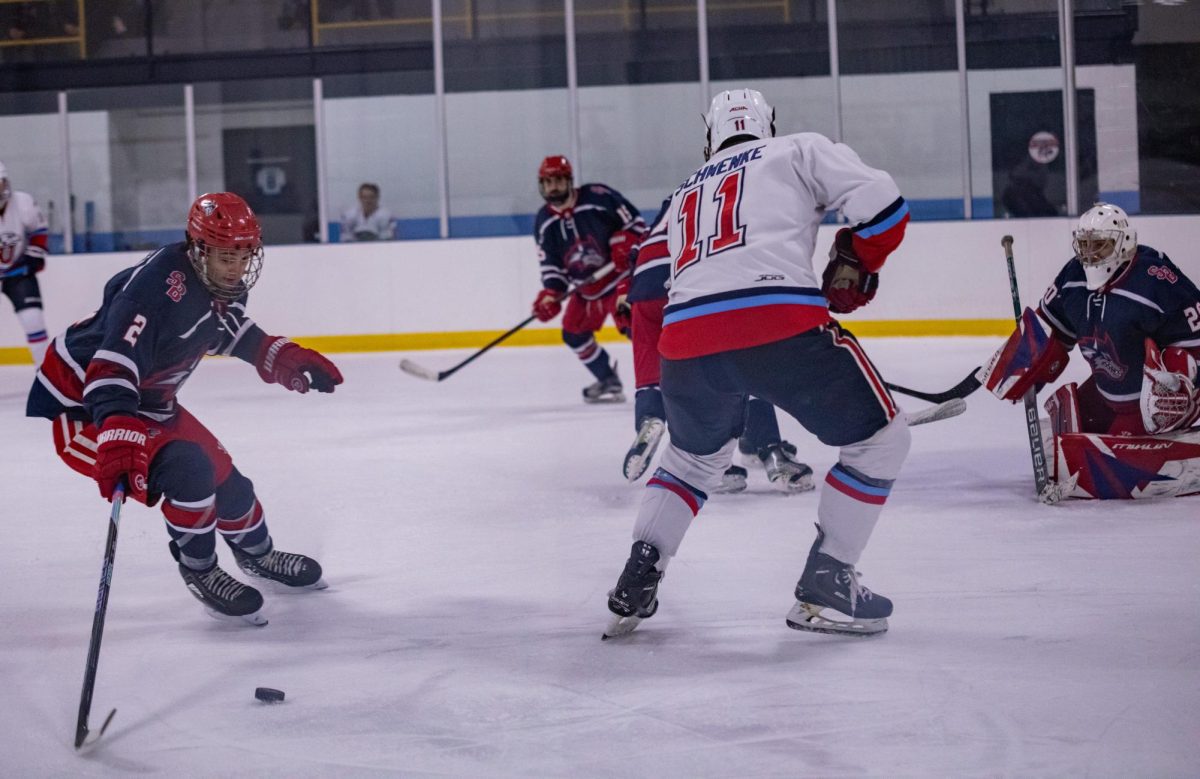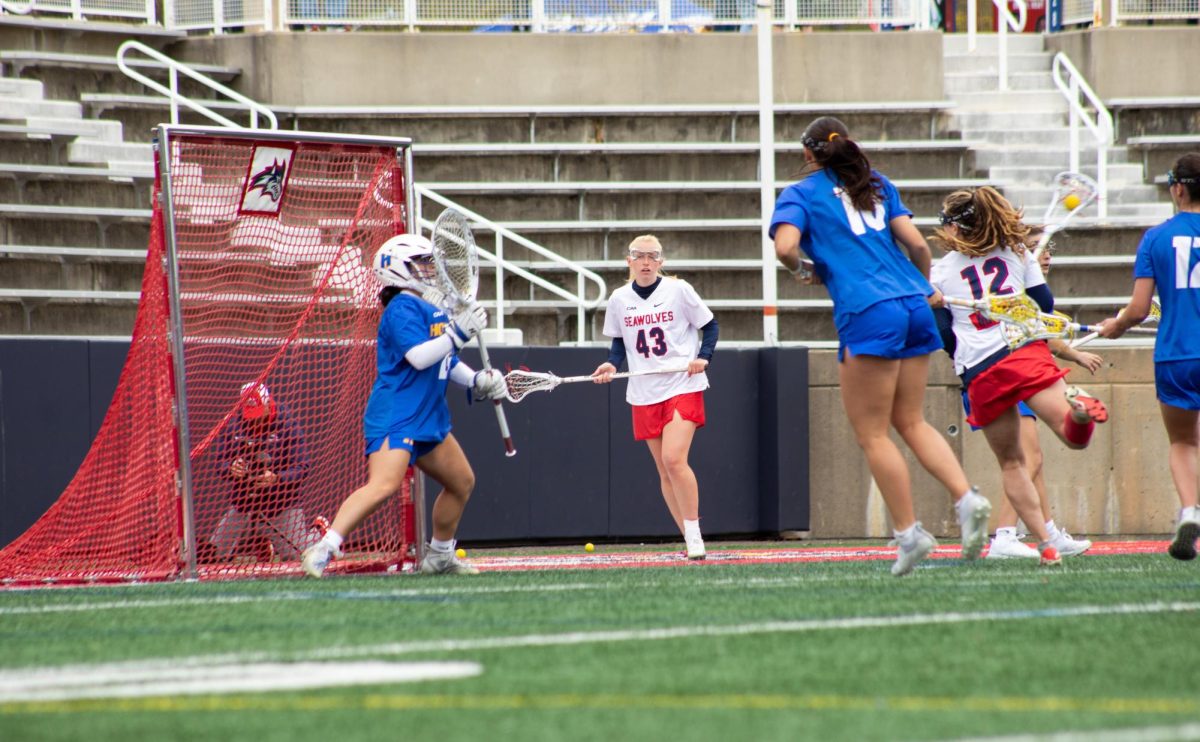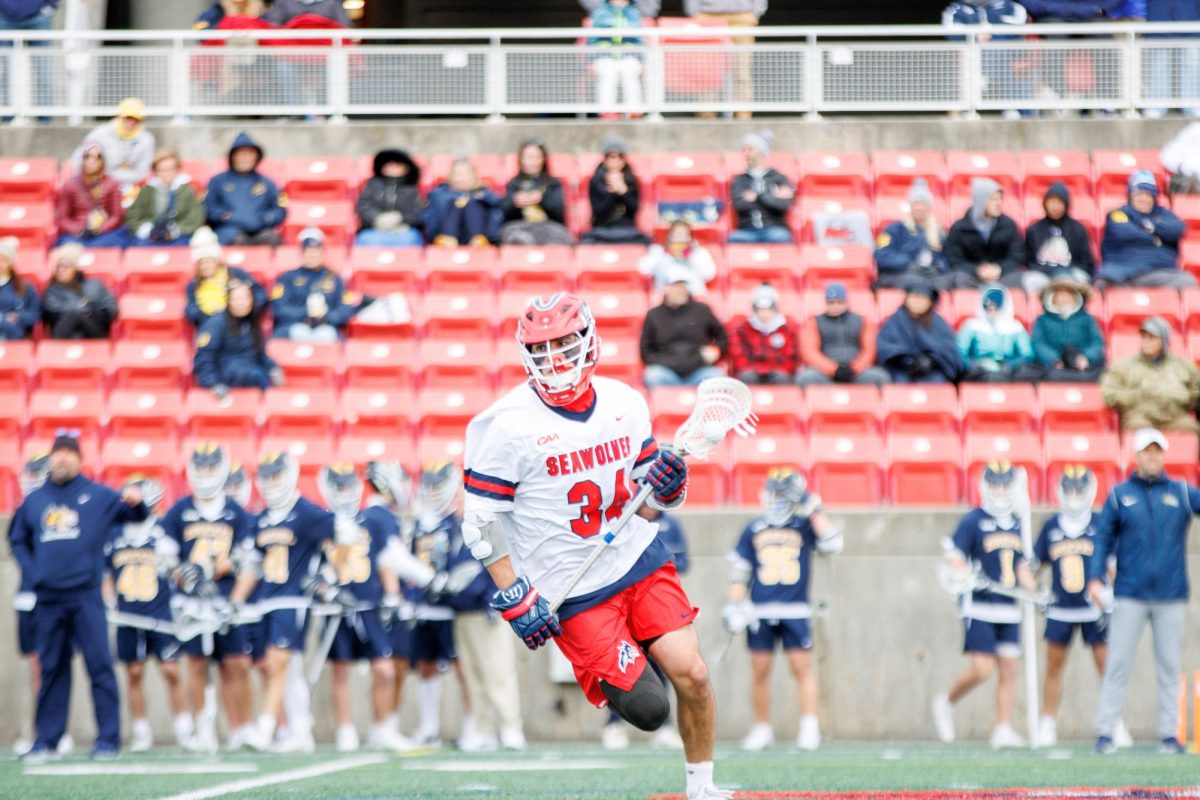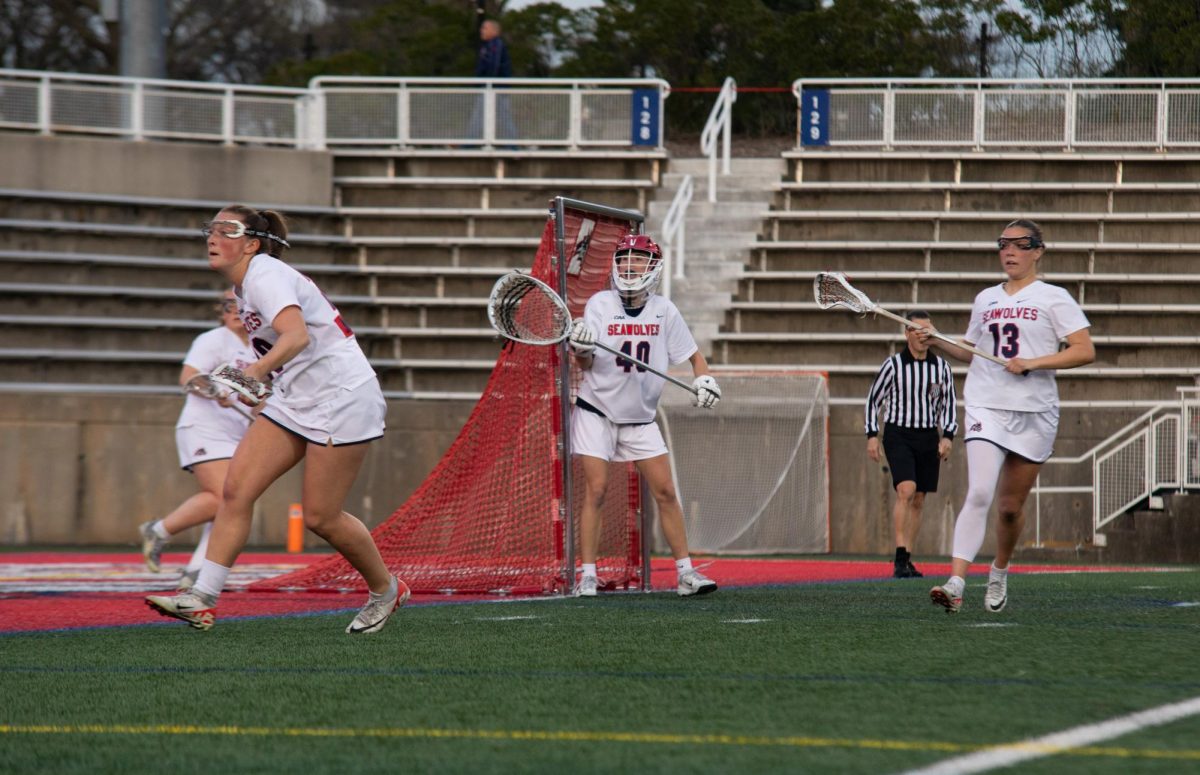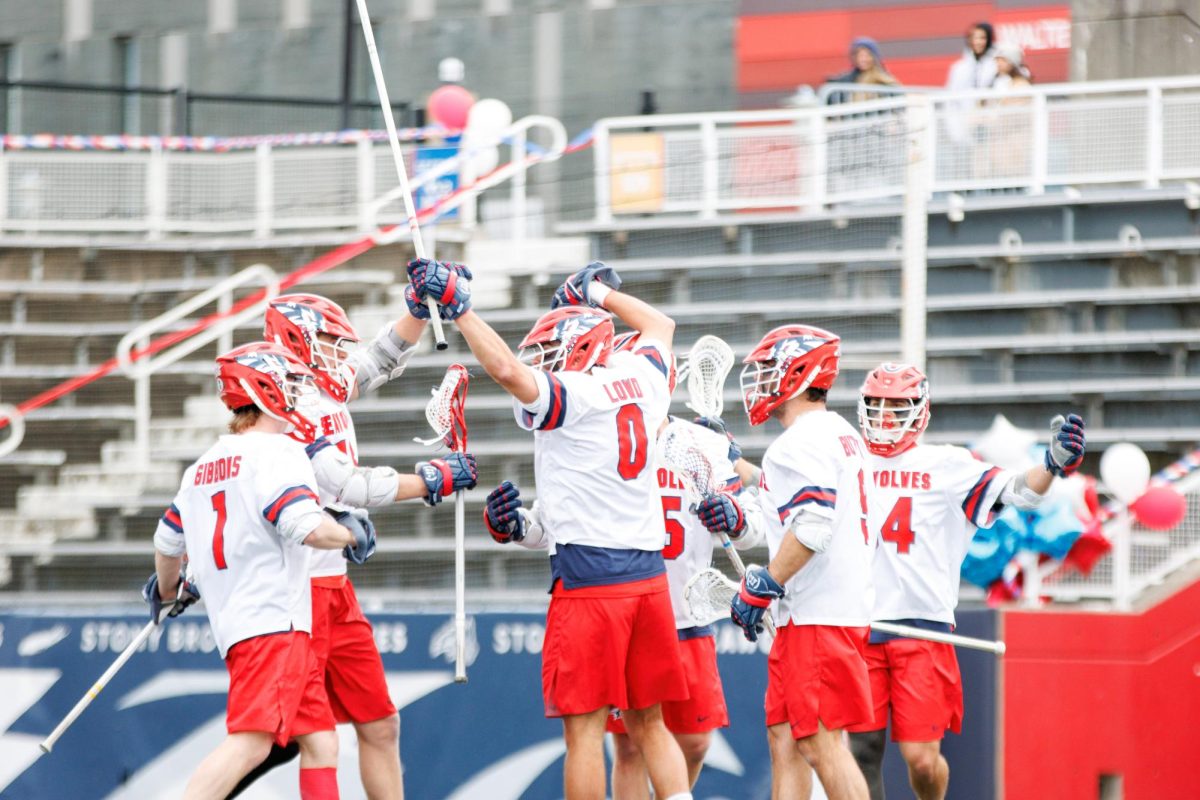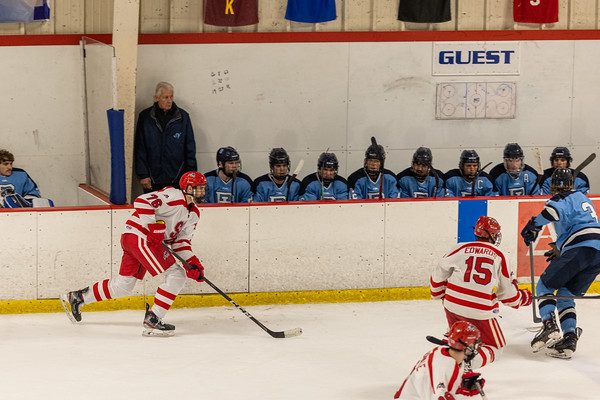
After winning the Stony Brook hockey team’s Rookie of the Year award last season, center Will Kormanik’s sophomore year is shaping up to be his for the taking.
As a freshman with high expectations coming in, Kormanik became one of the bright spots on an otherwise disappointing team. On a squad with productive veteran forwards like Brandon Avezov, Matt Minerva, Greg Barnych and Devin Pepe, Kormanik wound up being the team’s third-leading scorer with 26 points in 30 games.
However, Kormanik’s pleasantly surprising rookie year did more than just put him on notice to the rest of the American Collegiate Hockey Association (ACHA). It also allowed him to rediscover his love for the game after seeing it deteriorate during his junior hockey days.
After graduating from Maspeth High School in Queens, N.Y. in the spring of 2019, Kormanik joined the North Jersey Avalanche hockey organization and played for the 18-and-under team. He spent the next two seasons with the Avalanche, developing his physical intangibles to prepare him for juniors. Kormanik went through rigorous agility training to improve his quick-twitch reflexes on the ice, while also working out to gain strength. He also spent more time focusing on his skating ability, which he said improved significantly during that stretch.
After playing with the Avalanche through early 2020, Kormanik aged out, forcing him to move on to the junior level. He was drafted by the Pride in Athletics for Life (P.A.L.) Junior Islanders and spent the next two years with them, but he did not enjoy it compared to previous experiences.
“I think out of all my teams, I liked playing for all the other ones more,” Kormanik said in an interview with The Statesman. “I definitely think that it could’ve been better.”
Kormanik’s experience with the P.A.L. Junior Islanders was marred by a lack of personal enjoyment. Most of his teammates were from out of state, forcing them to move into a house with one another. On the other hand, Kormanik lived close enough to the Islanders’ home rink to not need to bunker up. By not being able to live with his teammates, he missed out on valuable time to build connections with them off the ice.
Without a real kinship with any of his teammates, the Islanders began to feel like a job to Kormanik, rather than a passion or a dream.
“I was like ‘Damn, I’ve got to go to the rink today,’” Kormanik said. “It was just everyday, no break, five days a week, skating for practice and then games on the weekends. It was frustrating at times.”
Not only was Kormanik’s off-the-ice experience with the Islanders lackluster, but the team did not use him to his strengths. He is a center by trade, but the coaches were playing him on the wing, limiting his impact on the game. Kormanik was never used as one of the top-six forwards on the Islanders, further diminishing his value to the team. His lack of a featured role on the team was reflected in his numbers, as he only totaled 15 goals and 27 total points in 84 career games with the club.
After getting into ice hockey at six years old and making it his life goal at 14, Kormanik started to finally feel some ambivalence to the sport.
“Honestly, I don’t think junior hockey shaped me in any type of way,” Kormanik said. “If anything, it made me realize that even things that you love change based on situations that you’re in.”
Despite his experience with the Islanders, Kormanik has no ill will towards them.
“They were a good program, coaches were great, it just wasn’t for me,” Kormanik said.
During the 2020-21 season — Kormanik’s first year with the Islanders — he played alongside defenseman Andrew Mancini, who was an assistant captain for Stony Brook last year. Mancini left the Islanders and joined the Seawolves in the 2021-22 season and ultimately planted the seed for Kormanik’s recruitment.
Head coach Chris Garofalo recruited both Mancini and Kormanik at the same time. However, Kormanik had doubts, which ultimately delayed his Stony Brook debut by a whole year.
“[Garofalo] said that I would be an important piece of the team,” Kormanik said. “It was a question of ‘Will I play another year of juniors or not?’ He was convincing me to come right away, and I just didn’t know if that was the right choice.”
Kormanik suffered through his final year before officially coming to the ACHA and joining the Seawolves. After making the decision to officially start his collegiate career, several NCAA Division III schools tried to scoop him up.
However, he was steadfast on the team that he passed on the year prior.
“Going back now, I would’ve went [to Stony Brook] after my first year of juniors,” Kormanik said. “There was definitely a handful of Division III schools, and it was just my mindset that I didn’t want to go play for those schools. Stony Brook’s going to offer me the same thing, whether somebody says it’s club hockey or NCAA Division III.”
Kormanik’s introduction to the Seawolves’ program and the ACHA revitalized him. A promising training camp earned him the left-wing spot on their second line at the start of the season. After not playing in the opening series, he made his debut at New York University and burst onto the scene. He scored a pair of goals in his first career game with Stony Brook and added an assist the next day.
Kormanik wound up recording a point in nine of his first 12 games before officially hitting his stride by midseason. Starting with an assist against Jamestown on Nov. 18, 2022, Kormanik recorded a point in seven consecutive contests, giving him 21 points through his first 17 games.
By season’s end, Kormanik was manning the first line on the left wing and having his praises sung by teammates and coaches alike. His successful first season helped him remember why he chose this career path.
“I absolutely loved my first year,” Kormanik said. “I told my coach that I fell in love with the game even more again after playing juniors.”
Part of what helped Kormanik find his niche with Stony Brook was what he was lacking in juniors: relationships with his teammates.
“The guys on the team … and the energy that they bring is great,” Kormanik said. “The guys that I live with are all great guys. The relationships are great. We have fun together and we just enjoy our time.”
Now heading into year two, Kormanik’s expectations are even higher. Garofalo is moving him back to his natural position of center after playing him on the left wing for all of last year. As of now, he will likely be centering the top line on opening night.
Garofalo is moving him down the middle to expand Kormanik’s role on the team and his impact on the game’s outcome.
“I look for guys down the middle that are going to play a 200-foot game,” Garofalo said. “They have to be as responsible in the D-zone as they are in the O-zone, and will displays that to us. It’s also good that he’s got more ice because he’s a pretty dynamic player and he has more room in the middle. Will’s a guy that’s going to excel at the center position.”
In preparation for his sophomore season, Kormanik added more muscle to his 6-foot-3 frame in hopes of winning more one-on-one opportunities with defensemen. As for the mental side of the game, he is not stressing on building off his statistical achievements from last year.
For Kormanik, all that matters is that he does his part to help the team win.
“I’m not looking at it as pressure,” Kormanik said. “We’re going to win games. I’m not focusing on what I’m going to do, but more what the team is going to do.”
Mike Anderson and Tommy Pardo also contributed reporting.







